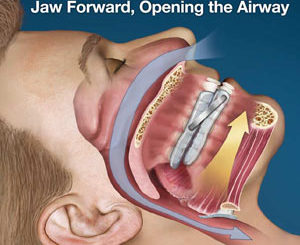
Am I telling you to encourage your child to sleep in school? NO! If your child is sleeping in school or falling asleep doing their homework, it means your child is not getting the right quantity and/or quality of sleep at night.
Your child’s sleep has a significant impact on their performance in school.
For our children to be healthy they need good nutrition, exercise and enough sleep. The National Sleep Foundation says our elementary school children, ages 5-12, need 10-11 hours of sleep per night. The quality and quantity of sleep determines learning and retention of that learning.
Clinical psychologist Reut Gruber, director of the Attention Behavior and Sleep Lab at the Douglas Research Center in Quebec, Canada, led a research team examining the sleep of 75 children ages 7-11. This study looked at the effect on grades for the children based on the quality of their sleep.
“Short or poor sleep is a significant risk factor for poor academic performance that is frequently ignored,” says Gruber. The study looked at the effect of poor quality sleep in several subject areas.
Based on the study, Gruber says, “For math and languages, we need to use the skills that are called ‘executive functions’ – things like working memory, planning, not being distracted. The hardware that supports those skills is in the pre-frontal cortex of the brain, which is very sensitive to the effects of poor sleep or insufficient sleep.”
Lack of sleep also effects the behavior of your child in the classroom. Sleep deprived children have more difficulty controlling their emotions and impulses.
“We know that sleep deprivation can affect memory, creativity, verbal creativity and even things like judgment and motivation and being (engaged) in the classroom,” explains Dr. Judith Owens, director of sleep medicine at Children’s National Medical Center in Washington.
As a sleep consultant I teach sleep hygiene for children and coach families to develop healthy sleep habits.
My five sleep habits for school age children:
1. Consistent bedtime and wake-up time
The same bedtime each night sets the body’s 24-hour rhythm. The bedtime chosen should allow the child to receive the recommended 10-11 hours of sleep per night. A consistent bedtime will teach the child’s body to anticipate and be ready for sleep. Make sleep a priority by making their bedtime a priority.
2. Bedtime Routine
Twenty to thirty minutes before bedtime is preparation for sleep. The blue lights from TV, pads and smart phone screens wake the brain up. So no screen viewing for 30 minutes prior to bedtime.
The child should not go to bed hungry, but should be finished eating about two hours prior to bedtime. Avoid caffeine about six hours prior to bedtime.
Develope a routine to follow each night before bed. It might include a bath, pajamas, and reading a book together and/or alone.
3. Bedroom environment
The room should be dark. Use room darkening shades or curtains to keep the room dark in the evening or early morning.
The temperature of the room should be between 67 and 72 degrees.
4. White noise
Background or white noise blocks the other sounds of your house or neighborhood which might interrupt your child’s sleep. White noise machines should be placed about 5 feet from your child. A fan can also be used for white noise.
5. Sleep is a privilege. Do not use going to bed as a punishment. Sleep is just as important as food for your child. Teach your child to value their sleep.
Have a healthy sleeping and learning school year for your children!
Resource:
Sleep Efficiency (but not Sleep Duration) of Healthy School-age Children is Associated with Grades in Math and Languages, by Reut Gruber, Gail Somerville, Paul Enros, Soukaina Paquin, Myra Kestler, Elizabeth Gillies-Poitras is published in the journal Sleep Medicine:
http://dx.doi.org/10.1016/j.sleep.2014.08.009
Proudly WWW.PONIREVO.COM



